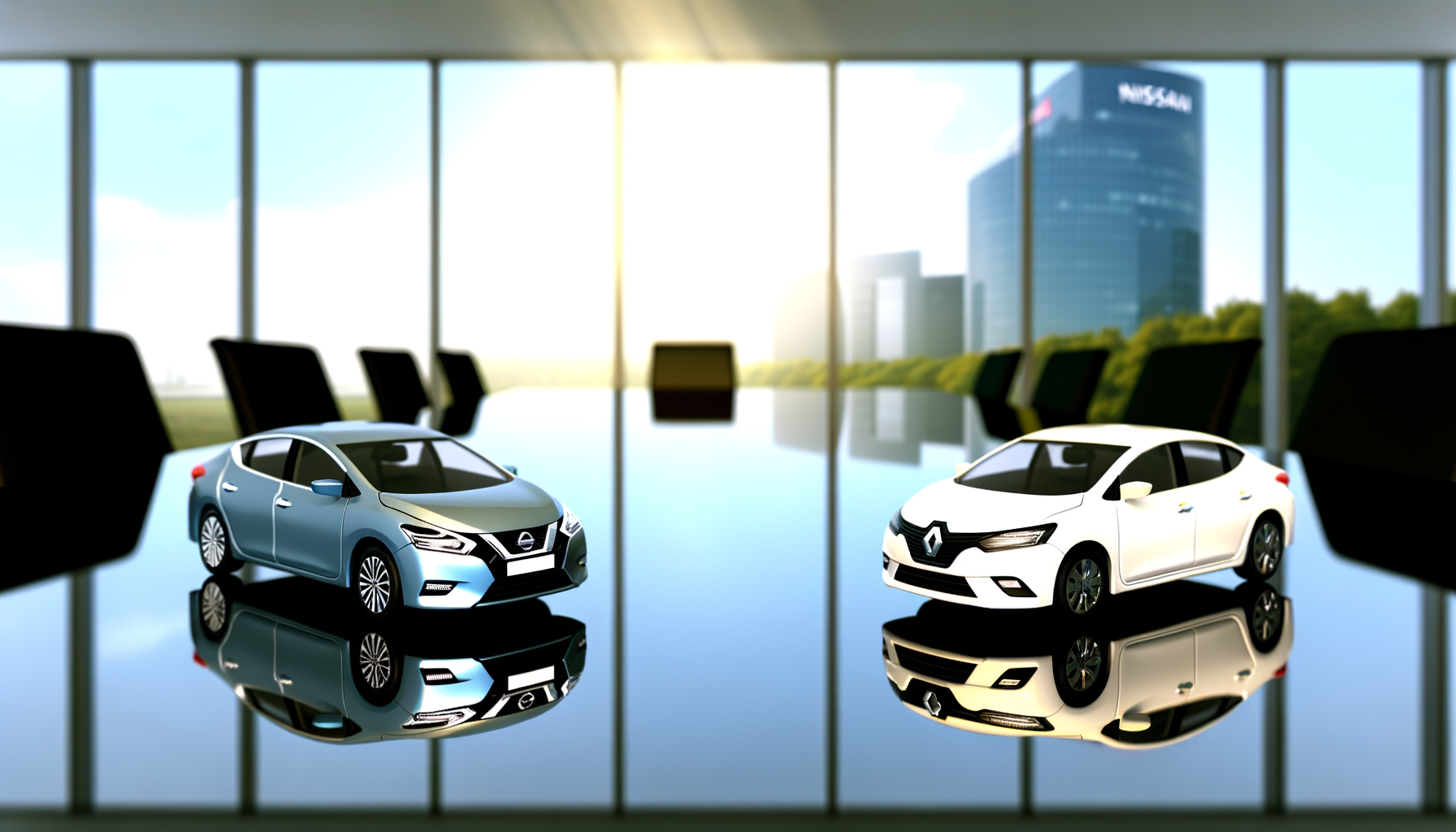
Nissan is resisting renewed attempts by its alliance partner Renault to pursue a merger under a holding company framework, as it believes such a structure would not aid in the company’s recovery, according to an insider familiar with the situation. Discussions have been in progress since Renault’s Chairman Jean-Dominique Senard proposed the idea informally to Nissan’s CEO Hiroto Saikawa back in April, the source mentioned, preferring to stay anonymous due to the private nature of the talks. Nissan has been consistently rejecting the proposal since it was first introduced, the source added.
The revelation of these negotiations comes at a time when Nissan is preparing to announce on Tuesday what is expected to be its lowest annual operating profit in ten years, a result of declining U.S. sales, an outdated lineup of vehicles, and a product cycle that is misaligned. The merger proposition surfaced following a period of intense upheaval within the two-decade-long partnership, which was rocked by the arrest of Carlos Ghosn, the architect of the alliance and its former Chairman. Nissan has chosen not to comment on these discussions.
Representatives for Renault have not provided any immediate response to inquiries for comments. The individual with knowledge of the matter expressed that a merger under a holding company would not address Nissan’s current operational challenges, which include high fixed costs, non-profitable models, and ineffective strategies for the Datsun and Infiniti brands. Furthermore, the source indicated that adopting a new structure would likely result in delays in resolving these issues due to logistical and regulatory complications. The source also noted that a unified company would not bring additional benefits of scale since the two firms already share purchasing and development expenses.
Japanese broadcaster TBS reported earlier that Renault had extended a formal proposal to Nissan for a merger under a holding company model, citing sources that were not named. TBS did not provide details on what was meant by ‘formal’ or the timing of the proposal. The Japanese government has also reportedly dismissed efforts by Renault to initiate merger discussions, as stated by the Financial Times.
No official proposal has been presented to Nissan, according to an individual close to Renault. A representative from Nissan declined to comment on the report by TBS. Despite an agreement in 2015 where the French automaker pledged not to meddle in Nissan’s board decisions, Renault might find an opportunity to press for a merger due to Nissan’s financial vulnerabilities. Such a merger would enhance the position of Renault and Nissan as the automotive industry undergoes significant transformations towards electric and autonomous vehicles.
The holding-company structure proposed by Senard is designed to ensure equal ownership and board representation for both Renault and Nissan, as stated by those who are familiar with the matter. The goal is to win Nissan’s approval; however, Saikawa turned down a request from Senard last month to reconsider a merger, as per people with knowledge of the situation.
The partnership between the French and Japanese carmakers, along with their third partner Mitsubishi Motors, results in the production of 10.8 million vehicles annually—almost twice the global deliveries of Ford Motor. Currently, the alliance is structured through a series of cross-shareholdings and ranks as the second-largest automotive group after Volkswagen Group, with Toyota in close competition.

